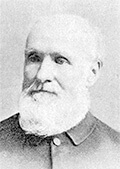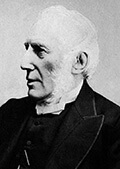Good Friday
Click here to join the effort!
Bible Commentaries
Commentary Critical and Explanatory on the Whole Bible - Unabridged Commentary Critical Unabridged
Old Testament
The creation, humanity's fall, the flood, and God's covenant with Abraham and his descendants. Exodus
Israel's escape from Egypt, receiving the Law, and covenant formation at Mount Sinai. Leviticus
Laws on sacrifices, purity, and holiness, guiding Israel's worship and community life. Numbers
Israel's wilderness journey, census data, and preparations for entering the Promised Land. Deuteronomy
Moses' final speeches reiterating the Law and renewing Israel's covenant before entering Canaan. Joshua
Israel's conquest, division of Canaan, and Joshua's leadership in settling the Promised Land. Judges
Israel's cycle of sin, oppression, and deliverance by judges, highlighting moral decline. Ruth
A story of loyalty and redemption, leading to Ruth becoming an ancestor of King David. 1 Samuel
Samuel's leadership, Saul's reign, and David's rise as Israel's future king. 2 Samuel
Focuses on King David's reign, his successes, personal failings, and the establishment of a united Israel. 1 Kings
Solomon's reign, the temple's construction, and the kingdom's division after his death. 2 Kings
Chronicles the history of Israel and Judah, detailing the reigns of their kings and the fall of Jerusalem. 1 Chronicles
A retelling of Israel's history, focusing on David's reign and temple preparations. 2 Chronicles
The history of Judah's kings, emphasizing temple worship, leading to Babylonian exile. Ezra
The return from exile, rebuilding the temple, and reestablishing the Law in Jerusalem. Nehemiah
Nehemiah's efforts to rebuild Jerusalem's walls and restore the community's faithfulness. Esther
A Jewish queen's courage saves her people from a plot of genocide in Persia. Job
A righteous man's suffering, his dialogues on justice, and God's ultimate sovereignty. Psalms
A collection of songs and prayers expressing worship, lament, thanksgiving, and praise to God. Proverbs
Wisdom sayings offering guidance on moral living, relationships, and the fear of God. Ecclesiastes
Reflects on the meaning of life, exploring the futility of human endeavors and the pursuit of wisdom. Song of Solomon
A poetic celebration of love, expressing deep romantic and spiritual devotion between lovers. Isaiah
Prophecies of judgment and redemption, foretelling the Messiah's coming and Israel's restoration. Jeremiah
Warnings of Jerusalem's destruction, calls for repentance, and promises of a new covenant. Lamentations
Poems mourning Jerusalem's destruction and expressing deep sorrow, yet hope in God's mercy. Ezekiel
Visions and prophecies of Jerusalem's fall, Israel's restoration, and a future temple. Daniel
Stories of faithfulness in exile and visions of future kingdoms and God's ultimate victory. Hosea
A prophet's marriage symbolizes God's steadfast love for unfaithful Israel, calling for repentance. Joel
Prophecies of a locust plague, judgment, and the outpouring of God's Spirit. Amos
A call for social justice, condemning Israel's complacency and predicting divine judgment. Obadiah
Prophecy against Edom for its betrayal of Israel, foretelling its destruction. Jonah
A reluctant prophet's mission to Nineveh, highlighting God's mercy towards repentance. Micah
Warnings of judgment, calls for justice, and prophecies of a future ruler from Bethlehem. Nahum
The impending fall of Nineveh as God's judgment against Assyrian cruelty. Habakkuk
A prophet questions God's justice, leading to a vision of divine sovereignty and faith. Zephaniah
Prophecies of judgment on Judah and surrounding nations, with promises of restoration. Haggai
Encouragement to rebuild the temple after the Babylonian exile, emphasizing God's presence. Zechariah
Visions and prophecies encouraging the returned exiles, foretelling the Messiah's coming. Malachi
A call to covenant faithfulness, addressing Israel's spiritual apathy, and predicting Elijah's return.
New Testament
Jesus' life, teachings, and fulfillment of Old Testament prophecies as the Messiah. Mark
A fast-paced account of Jesus' ministry, focusing on his actions and sacrificial death. Luke
Jesus' life, emphasizing compassion for the marginalized and the universal scope of salvation. John
Theological reflections on Jesus as the Word of God, focusing on his divine nature and mission. Acts
The early church's growth, the apostles' ministry, and the spread of the Gospel. Romans
A theological treatise on salvation, grace, faith, and righteousness through Jesus Christ for all. 1 Corinthians
Paul addresses divisions, immorality, and spiritual gifts in the Corinthian church. 2 Corinthians
Paul's defense of his apostleship, his sufferings, and the power of God's grace. Galatians
Paul's defense of the Gospel of grace against legalism, emphasizing faith in Christ alone. Ephesians
Paul's teachings on the church's unity, spiritual blessings in Christ, and Christian conduct. Philippians
A letter of joy and encouragement, urging humility and faithfulness amid persecution. Colossians
Paul's emphasis on Christ's supremacy and warnings against false teachings. 1 Thessalonians
Encouragement to a young church, with teachings on holiness and Christ's return. 2 Thessalonians
Clarifications about Christ's return and exhortations to stand firm in faith. 1 Timothy
Guidance for church leadership, sound teaching, moral conduct, and defending the truth of the gospel. 2 Timothy
Paul's final exhortations to Timothy, emphasizing perseverance and faithfulness. Titus
Instructions for establishing order in the church, promoting sound doctrine, and living with integrity. Philemon
A personal appeal for the forgiveness and restoration of a runaway slave, Onesimus. Hebrews
An insightful look at Christ's supremacy, priesthood, and the fulfillment of prophecies. James
Practical wisdom on living out one's faith through good works and righteous behavior. 1 Peter
Encouragement for suffering Christians to remain faithful and hopeful in their trials. 2 Peter
A reminder to grow in faith, resist false teachings, and remain steadfast awaiting His return. 1 John
Teachings on love, obedience, and assurance of salvation through fellowship with God. 2 John
A letter encouraging love, obedience to God's commands, caution against teachings that deny Christ's truth. 3 John
A personal letter commending hospitality and warning against arrogance in church leadership. Jude
A strong warning against false teachers and a passionate call to defend the faith and uphold the truth. Revelation
Apocalyptic visions of God's ultimate victory, Christ's return, and the new heaven and earth.
Author's Biography
Robert Jamieson, Andrew Fausset, and David Brown stand as a distinguished trio in the field of biblical scholarship, known primarily for their monumental work, the "Jamieson-Fausset-Brown Commentary." This comprehensive commentary on the Bible, first published in the latter half of the 19th century, remains a revered resource for theologians, pastors, and lay readers alike, offering deep insights into the Scriptures.
Robert Jamieson (1802-1880) was a Scottish clergyman and theologian, serving with distinction in various parishes within the Church of Scotland. His deep commitment to pastoral care and theological education marked his ministry, laying a strong foundation for his later scholarly work. Jamieson's scholarly pursuits were driven by a passion for making the Bible accessible and understandable to both clergy and laypeople, a mission that found its culmination in the collaborative commentary.
Andrew Robert Fausset (1821-1910), an Irish Anglican clergyman and scholar, brought to the project an impeccable command of biblical languages and a meticulous approach to scriptural analysis. Fausset's contributions to the commentary are noted for their thorough examination of the historical and linguistic context of the Scriptures, enriching the reader's understanding of the biblical text.
David Brown (1803-1897), a Scottish theologian and minister, was renowned for his preaching and academic contributions to the Free Church of Scotland. Brown's work in the commentary is characterized by practical application and an evangelical warmth, aiming to bridge the gap between scholarly insight and everyday Christian life.
Together, Jamieson, Fausset, and Brown created a commentary that combines scholarly rigor with pastoral sensitivity, offering readers a rich tapestry of biblical interpretation. Their work is distinguished by its methodical approach to scripture, examining the original Hebrew and Greek texts, and providing exhaustive commentary on virtually every verse of the Bible. The "Jamieson-Fausset-Brown Commentary" endures as a testament to their collective expertise, a treasure trove of biblical knowledge that continues to offer guidance, inspiration, and understanding to those who turn to its pages.


